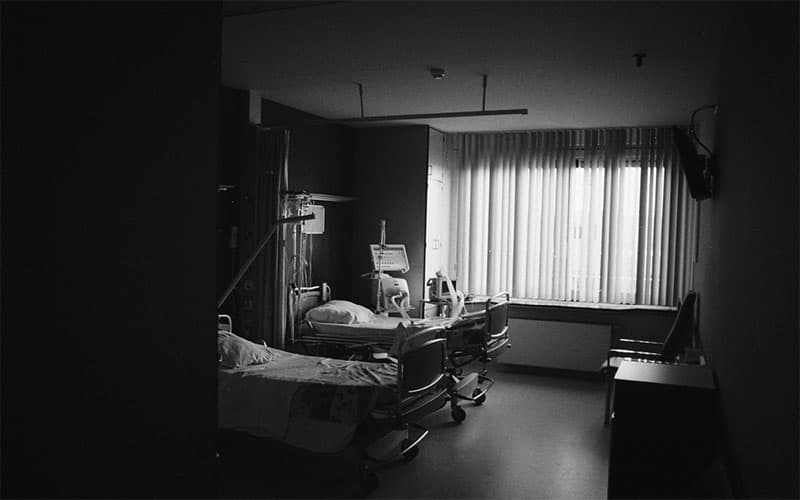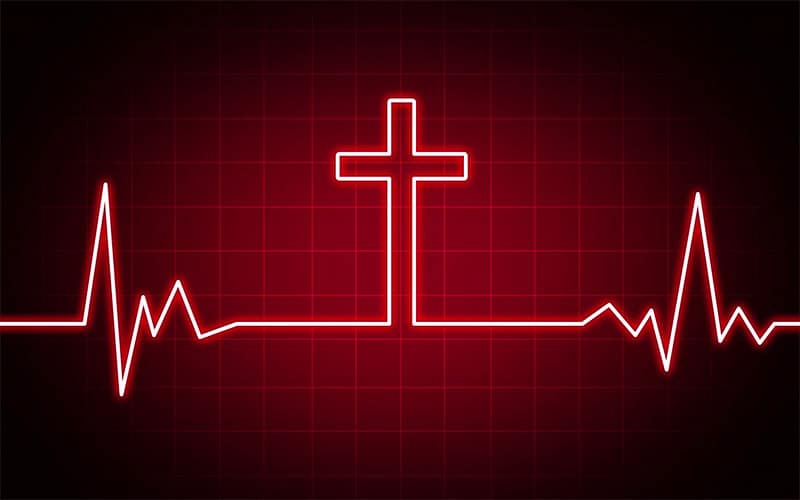It was late on a Monday evening at the VA hospital. I had been at it since 6 a.m. and was in for a long night and day. I walked into the dimly lit room and could tell at a glance the man was dying.
His breath came thick and heavy. His chest heaved with the struggle. I called him softly by name. To my surprise, he stiffened slightly. I had mistakenly thought him too far gone for conversation. I soon discerned he was lucid and could answer my questions, albeit only in brief spurts.
He was not an exceptionally old man, but he was clearly spent. A combat veteran of the Korean War, he had been diagnosed with a squamous cell carcinoma of his sinuses five years before. The radiation and chemotherapy had burned out his olfactory and optic nerves, leaving him completely blind and without his sense of smell or taste. He was utterly deaf in one ear and had 70% hearing loss in the other. His salivary glands no longer functioned, so he had to constantly sip from a cup of water. He also had a profound diabetic neuropathy that robbed him of sensation in his hands and feet.
In pathetic gasps, he told me the details of his medical odyssey. I got to his social history, and he reported two packs of cigarettes a day, daily alcohol consumption and heavy drug use for 35 years. As he clearly did not drink, smoke or do drugs now, I innocently inquired as to when he had stopped those things.
Without hesitation, he gave me a specific date. I asked him what was significant about that day, and he replied, “That’s when I gave my heart to Jesus.”
This opened the floodgates, and he enthusiastically explained the details of his spiritual transformation. He called himself a messianic Jew, claiming Jesus had forever changed his life.
As I listened enraptured, he told me not to feel sorry for him. He said he hated being sick, but because of his illness, he had been able to lead his daughter and one of his chemotherapy nurses to Jesus. He said he could clearly see God’s will in his illness. The strength and confidence he exuded were superhuman.
By the time I finished the interview, we were both exhausted. I checked his medication orders a final time and put him to bed.
The night was busy, something or other requiring my attention throughout the evening. The next morning, I met the man’s wife and daughter and found their faith was up to the challenge.
The day was long, and he gradually declined. By 6 p.m. the next day, I was thoroughly spent but dropped by to check on my sickest patient before heading home.
He was gasping in an oxygen mask, his wife, daughter and a nurse in attendance. I took his hand and explained I was going home for the night. He took a surprisingly firm grasp on my arm and pulled me close, his strongest voice now little more than a whisper. With his other hand he reached up, removed his oxygen mask and immediately began turning blue. With literally his dying breath, the man prayed for me.
He did not pray for me to alleviate his pain or conjure some miraculous cure. Instead, he prayed for me and my ministry in the hospital. He prayed for the well-being of my family. He prayed I might enjoy the abundant life in Christ he had enjoyed. He prayed until he could no longer speak.
I replaced his oxygen mask and slid to the floor, stunned. Right there, in front of him, his family, the VA nurse and God himself, I wept like a child. I weakly thanked him before heading home, now having quite a lot to ponder.
The next morning, I arrived at the hospital early to find his condition worse still. At 10:47, with my arm around his wife’s shoulders, I watched him die. I had known him less than three days, yet I count him among my dearest friends. He showed me how to die well.
I look forward to seeing him again.

